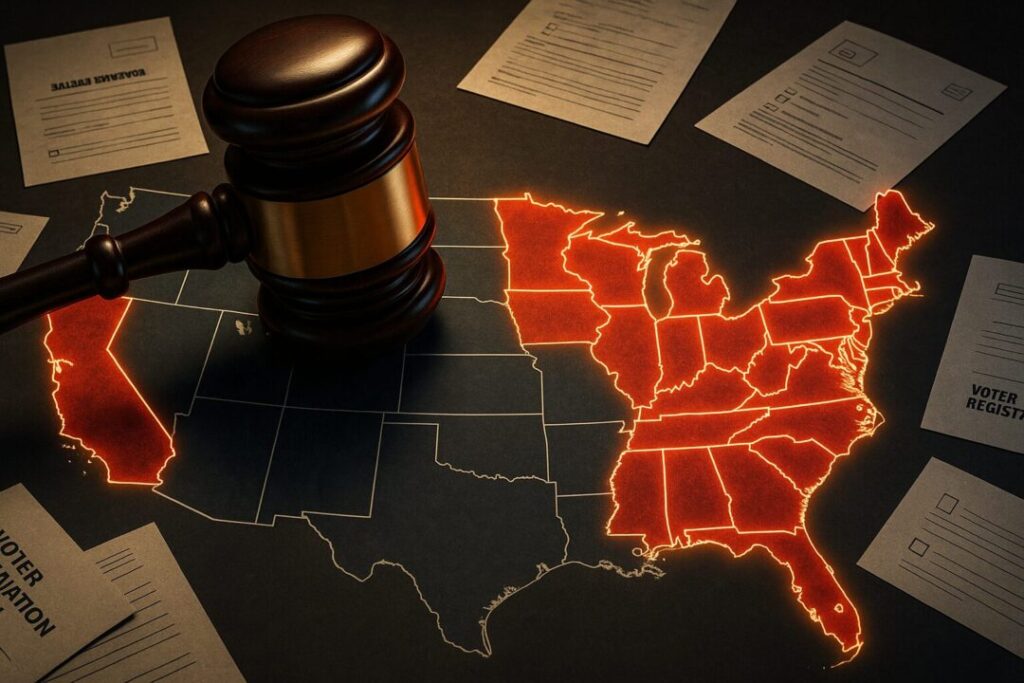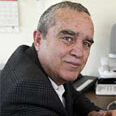The U.S. Justice Department just dropped a legal hammer on six states – California, Michigan, Minnesota, New York, New Hampshire, and Pennsylvania – for refusing to hand over their statewide voter registration lists.
Why Voter Rolls Matter
Think of voter rolls like a guest list for a wedding. If you don’t double-check it, you could have people who were never invited showing up for a free dinner, while actual guests get left out.
In elections, that can mean ballots going to dead voters, people who moved years ago, or even non-citizens.
That’s why Congress passed laws like the National Voter Registration Act (NVRA) and the Help America Vote Act (HAVA).
These require states to keep their voter rolls clean and updated. The Civil Rights Act of 1960 also gives the federal government the power to demand those lists for inspection.
According to the DOJ, these six states simply didn’t comply. So now, they’re in federal court.
Nevada’s Connection
You might be thinking, “That’s bad, but what does it have to do with us here in Nevada?”
A lot, actually.
Nevada has had its own share of voter roll controversies.
In 2020, the Nevada Republican Party sued to block mail ballots being sent to outdated addresses. Groups like Judicial Watch have flagged Nevada in the past for having more registered voters than actual voting-age citizens in certain counties.
Even Clark County officials admitted after 2020 that more than 92,000 ballots were returned undeliverable because the voters no longer lived at the listed address.
When you consider that Nevada elections often come down to razor-thin margins – like the 2022 attorney general’s race that was decided by fewer than 8,000 votes – dirty voter rolls can tip the balance.
Democrats Push Back Against Clean-Up
Critics of these lawsuits argue that states already work to keep lists updated and that errors are inevitable in a big system. Some Democrats claim the DOJ’s actions are part of a conservative push to suppress voting.
But that ignores the real problem: bad data invites bad actors.
If ballots are floating around to old addresses, it only takes a handful of dishonest people to cause real damage.
And even if no fraud happens, just knowing ballots are sent to the wrong places shakes public trust.
Dirty Rolls Damage Public Trust
Assistant Attorney General Harmeet K. Dhillon summed it up, saying: “Clean voter rolls protect American citizens from voting fraud and abuse, and restore their confidence that their states’ elections are conducted properly, with integrity, and in compliance with the law.”
That’s the heart of the issue. Elections aren’t just about counting ballots. They’re about giving citizens confidence that the system is honest.
If people lose faith in the fairness of elections, the whole foundation of our democracy is weakened.
Nevada’s Next Steps
Governor Joe Lombardo has already taken steps to restore election integrity in Nevada, pushing for voter ID laws and tighter security.
But if the DOJ is going after other states for refusing to hand over their rolls, Nevadans should be asking whether our own lists are up-to-date and transparent.
With another presidential election just around the corner, the timing couldn’t be more important.
Nevada is a swing state. The last thing voters need is to wonder if their ballot is canceled out by a ghost voter still on the rolls.
DOJ’s Message: Trust in Elections is at Stake
The Justice Department’s lawsuits send a clear message: clean up your voter rolls, or the feds will step in.
For Nevada, it’s a warning shot. We don’t want to end up in the same boat as California or Pennsylvania.
Free and fair elections don’t just happen. They require constant work, accountability, and a commitment to accuracy.
Nevadans know all too well how close races can get. That’s why clean voter rolls aren’t just a technical detail. They’re the bedrock of our voice in government.
The opinions expressed by contributors are their own and do not necessarily represent the views of Nevada News & Views. This article was written with the assistance of AI. Please verify information and consult additional sources as needed.




